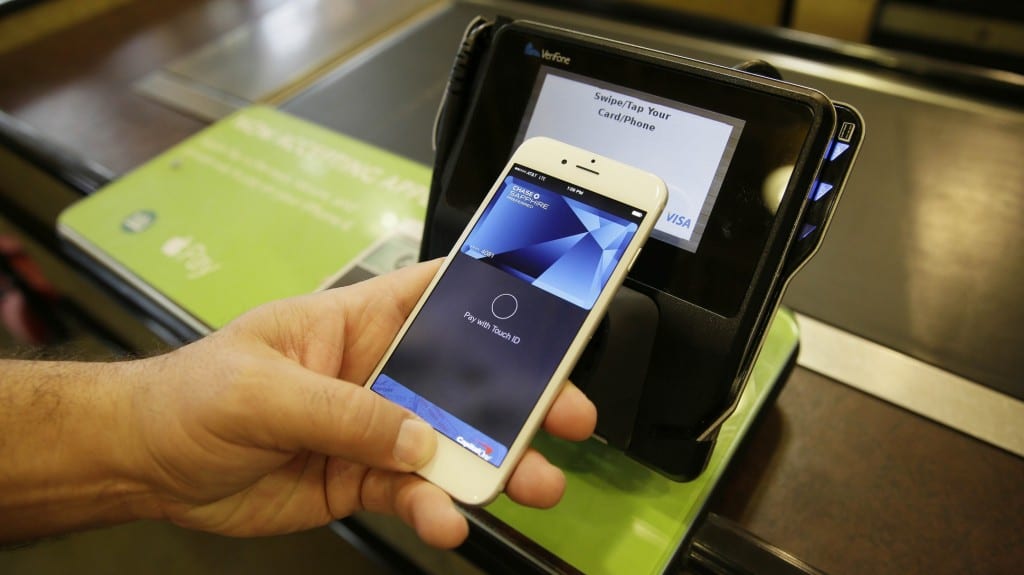
“China is an extremely important market for Apple, and with China UnionPay and support from 15 of China’s leading banks, users will soon have a convenient, private and secure payment experience,” Eddy Cue, Apple’s head of Internet software and services, said in a statement.
A few hours later, Samsung announced a similar partnership with China UnionPay.
“The collaboration with China UnionPay, coupled with the support from major UnionPay partner banks in China, will bring this secure and easy-to-use mobile payment solution to more Samsung mobile users,” Injong Rhee, the global chief of Samsung Pay, said in a statement.
Companies are eager to push mobile payments in the belief that the additional service will build consumer loyalty. Users of electronic-payments services might be more likely to stick with their current smartphone if they could store their payment data and use the device to buy shampoo, beer, gum or whatever else.
As the largest smartphone market in the world, China represents a significant business opportunity for mobile-payments systems. The country’s massive population of 1.35 billion and growing middle class have created a lucrative market for companies like Apple and Samsung. For Apple, China is a key market, accounting for $12.5 billion in revenue during its fourth quarter.
Apple had been trying to reach an agreement with Chinese bank UnionPay, which is the only bank in China that conducts interbank payments, according to a report in MarketWatch. That monopoly on credit- and debit-card processing effectively locks out MasterCard and Visa.
Since last year, Apple has also been chatting with at least eight major Chinese banks about adopting Apple Pay. But those talks hadn’t gone well either, a source close to them told MarketWatch. One bank expressed no interest in any deal.